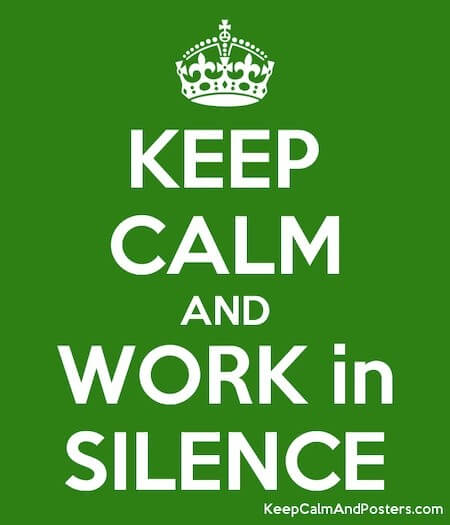
Today’s (Tuesday 10th August) post has been written while part of Writer’s Hour from 8 to 9am on Monday 9th. After this hour I then moved on to an hour of “Silent Co-Working”, in which I listened back to some of the interviews done last week of four amazing women leaders interviewed for the new “Elevating Leaders” podcast series that we will be editing for release in September.
The idea to join Writers Hour came from my attending a silent co-working hour as part of Katie Elliott’s Curious Community last week, so was happy to take the first two hours of my Monday to first write, then to do one hour of further focussed work.
As we explore all of the changes that will come to the world of work, some changes go beyond the workplace, whether that be at home, at an office, or at a third space such as a co-working hub. What I can tell you is that “consciously silent” co-working feels different to me than simply being in a co-working space.
Over time I’ve been in and worked in co-working spaces in many cities, both individually and as part of a team. They can have definite value as a third space for individuals who value what such spaces can provide, such as space you may not have at home; peace and quiet so you can work in silence; a space to meet as a team; perhaps simply a good coffee machine!
However, when working in a co-working space solo, what feels missing to me is a sense of community, of commonality of purpose, of feeling seen, supported, acknowledged. I have, in fact, often felt a feeling of isolation in co-working spaces, with so many people determinedly shutting themselves out from others in the same physical space, notably by the use of having headphones in place as if to say “don’t bother me, I’m working”.
I have worked from anywhere (#WFA) for many years, am very comfortable working alone and at home, feel productive and balanced doing so. From that, I can then eliminate most of the perceived benefits of co-working, yet I have felt in these online writing and co-working hours a sense of something different.
Each of the two different co-working hours has almost identical formats:
- The first five minutes of the hours see a welcome from the host (with everyone else on mute, but with cameras on, then everyone puts in the chat what their intention is for the hour.
- We then go quiet for 50 minutes for our own work
- With five minutes to do, the host then calls us back in and we check back in via chat
That’s it. That’s all. Nothing more. No interactions with any of the participants. And yet.
And yet, for this veteran of #WFA, this feels different. I feel somehow more focussed in these virtual sessions, knowing that I am part of a group with a common intention for an hour. Yes, these sessions are in silence, yet by setting an intention at the start and coming back together at the end, there is an energy of community and collective focus present for me.
In fact, this reminds me of a team I was part of in Cayman, where around six of us all shared an open plan office space, often punctuated by sounds of phone calls or conversation, but then sometimes we would all fall silent for an hour or more. At those times I could sense a palpable collective intention as we all worked together in the same space with not a word shared.
I sense there is real value in considering learnings from such collective shared silence when we look towards how we set up all of the new “third space” co-working hubs that are being and will emerge in towns and villages previously dominated by a five day a week rush of commuters into their city, but now with people having the freedom to work at least two or three days per week from another location.
To recap for a moment as to why natural demand will create these spaces en masse, the average London commute (as a city example) from these towns and villages is well over two hours per day. Now, this means that the time, cost and personal energy savings are enormous for every day people do not have to commute, yet we must also give deep consideration to what environment, on those non-commuting days, is most conducive to doing our work. Yes, some may have the space, peace and quiet and be able to focus while working from home, but many will need to or simply prefer to work from a third space. See more thoughts on this in my earlier post: “A vision of a 15-minute Workplace“.
Imagine, then, a co-working space for a village for up to (say) 20 people and where people agree to arrive by a certain time at which everyone agrees to have a five-minute check-in, before agreeing to work in silence for a few hours, before again a 5 minute “check out” of that morning session. Each person would simply say their name and one short sentence on their intention (at the start), then similar at the end.
Over time, I can imagine the power of this in many ways, both in terms of collective energy around productive work towards our intentions, and also, by the simple human act of standing in a group and speaking for a moment each day, space will emerge for a new kind of community at and in the workplace, as well as (given such places will be far more local to where people live) a sense of local community in a new way.
